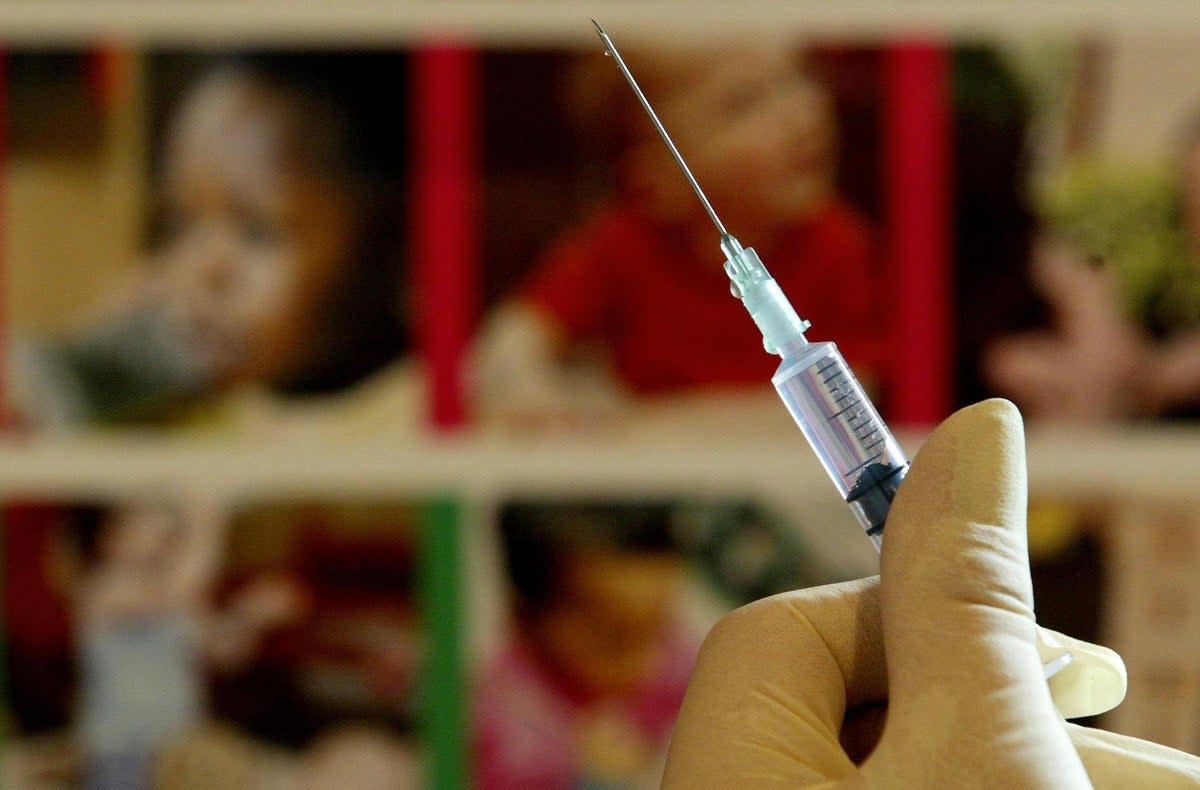Unvaccinated hotspots mapped as London faces major measles outbreak

The worst areas for childhood vaccinations against measles, mumps and rubella (MMR) have been revealed - as London faces a surge in measles cases and warnings sent to parents over possible isolation periods for unvaccinated children.
The UK Health Security Agency (UKHSA) says the risk of a measles epidemic across the UK is considered small, however in London, where uptake in the vaccinations is low, an outbreak of between 40,000 and 160,000 cases could occur.
The MMR vaccines are offered to all children, and are judged to be 99 per cent effective over two doses at the age of five - however, alarming data from the UKHSA shows there are areas where many parents are choosing not to get their child vaccinated.
The figures show across the UK, 85.6 per cent of children who turned five between January and March this year had received their second dose - but in some local authority areas that rate drops significantly.
The lowest current rate in England was the London borough of Hackney, where just 56 per cent of children at the age of five had received the double dose. Hackney was followed by Kensington and Chelsea (67 per cent) and Camden and Enfield (both 68 per cent).
In fact, the worst 14 areas for vaccination rates were inside the capital’s boundaries. Outside of London, Liverpool had the lowest with 74 per cent, followed by Nottingham (75 per cent) and Birmingham (76 per cent).
At the other end of the spectrum, in Bath and North East Somerset, 95 per cent of children aged five had had two doses.
The figures in London are low despite repeated efforts by the local councils to encourage parents and guardians to get their children vaccinated. In Hackney, last year, the borough’s director of public health, Dr Sandra Husbands, told parents it was ‘incredibly important’ that they made sure their children were up to date with their jabs.
But that message doesn’t appear to be working, despite the growing risk of an outbreak. And now some councils, including Harringey and Barnet, have written to parents to tell them any unvaccinated child who comes into close contact with a measles case could be asked to self-isolate for up to 21 days.
Hackney Green councillor Alastair Binnie-Lubbock told The Independent that the figures were ‘really concerning’ for his local authority. He partly blamed the rise of the anti-vaccination movement during the pandemic.
He said: “There has been a rise in the anti-vaccination movement and the spreading of misinformation which now has to be addressed because this is an important vaccination that can save lives. We are also seeing an issue with trust in institutions shaken by the government’s mishandling of the pandemic.”
He added: “We would like to see the council do more to address this situation - but, obviously, it is operating within a difficult financial picture. However, the council has to do more with encouraging parents to vaccinate their children.”
Chair of Health in Hackney Scrutiny Commission and Hackney Labour councillor Ben Hayhurst said: “Nobody wants to see their child or loved ones sick with measles, or put others who are more vulnerable, like babies, at risk. I urge those who have missed their MMR vaccines to catch-up now.”
A Hackney Council spokesperson said the council was working closely with the NHS and UKHSA to promote the uptake in vaccinations. They said it was taking the issue ‘extremely seriously’ due to the rise in cases across London - although they were not aware of any confirmed cases in the borough’s schools.
The spokesperson added: “We have used and will continue to use a range of methods to raise awareness of the issue, particularly focusing on population groups with the lowest MMR coverage. We would urge all parents to ensure their child is protected with an MMR (measles, mumps and rubella) vaccination. They should check their child’s red book and contact their GP to book an appointment for any missed vaccinations.”
One child with measles can infect nine out of ten people who have not had the MMR vaccination, say NHS England. A fifth of cases require a hospital visit and the infection can lead to complications in one in 15, such as meningitis and sepsis.
The MMR vaccine is given at one year old and again at around three years and four months in time for the start of school year.
